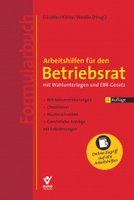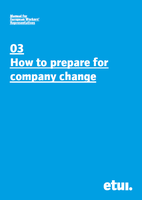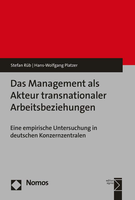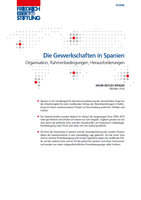 |
| Download pdf file | Newsletter archives | |||
| Dieser Newsletter auf Deutsch | Cette newsletter en français | |||
1. Brexit drama reaches fever pitch |
 |
|
Fall off the cliff-edge or delayed suicide?
Press report on UK government contingency plans Press report on European Commission contingency plans European Commission press release
The House of Commons should have originally approved the withdrawal agreement on 11 December 2018. In view of the violent criticism from its own benches and all opposition parties it became obvious that it would be voted down. On the day before therefore, the Prime Minister Theresa May announced that the vote would be postponed which gave rise to a vote of no confidence within her parliamentary group. On 12 December 2018, 200 MPs voted in favour of May, but more than one third (117 MPs) voted against her. In these conditions a majority vote for the withdrawal agreement is almost impossible. What will then happen once the agreement has been rejected in mid-January?
Early general elections or a second referendum hardly seem feasible in the time remaining before Brexit. This would have to be deferred to a later date requiring the approval from all 27 EU countries. These would presumably ask for concessions which would further restrict the UK government´s room for manoeuvre in the negotiations. Furthermore all of the special rights granted to the United Kingdom, some of which date back to the Thatcher years, would be lost. On 10 December 2018, the European Court of Justice ruled that the UK may unilaterally decide to cancel the Brexit without the approval of the other 27 EU Member States, but only prior to 30 March 2019. At present, the only outstanding question appears to be when the Brexit will be abandoned and not if.
Forthcoming event
The latest developments on the subject will be covered during the EWC conference to be held on 21 and 22 March 2019 in London.
UK government plans to facilitate the establishment of works councils
Establishing a works council in Germany requires only three employees to take the initiative. In contrast in the UK, the threshold of the workforce who must sign such a request is set to 10%. In the future this threshold is to be lowered to 2%. Information and consultation committees were integrated into British labour legislation in 2005, since this was a requirement of an EU Directive from 2002. In practice however they are not very widespread: only 25% of all British employees are represented by such a body. There are cases where employers have blatantly refused to establish an information and consultation committee as shown in the overview of lawsuits (see report in EWC News 2/2012).
Full text of The Good Work Plan (see page 22) Past experience with information and consultation committees |
 |
2. Recent reports from other countries |
 |
|
Labour shortage favours higher wages in Czechia
In Czechia, the average monthly income has risen by around 8.5% in 2018 (Germany: 3.0%) without a single labour dispute. There have been even higher increases in the automotive industry. One example is the Volkswagen subsidiary Škoda, which is the largest foreign investment in Czechia where wages have increased by more than 20% to 1,900 € gross. Czech employees earn 1,200 € on the average, whereby they are paid nearly 450 € more in Prague than e.g. in Carlsbad. Although wages are three times higher in Germany, the cost of living in Czechia has almost reached the same level as Germany. There are similar developments in Slovakia and Hungary (see report in EWC News 1/2018).
Although the membership levels of trade unions stand at only 11%, one in every two employees in Czechia is covered by a collective agreement usually at the company level. The reason behind the high increase in wages stems from the low unemployment figure of 2.3%, the lowest in the whole of the EU. The number of job opportunities is higher than the number of available applicants. Recently more and more workers from south Europe have been coming to Czechia, particularly from Italy. Concerning the standard of living, the country has in the meantime overtaken Greece and Portugal and is almost at the same level as Spain.
New Government´s social policies
A minority government made up of the liberal-populist party, ANO ("Action of dissatisfied citizens") and the social-democratic party which is tolerated by the communist party has been in office since 27 June 2018. The coalition plans to abolish the three unpaid sick days (sick pay starts only on the fourth day of illness), to increase family allowance, to facilitate early retirement in physically demanding occupations and to provide better safeguards for precarious employment contracts. The minimum wage is to be increased by around 9.8% to approximately 516 € per month starting 1 January 2019.
Industrial relations in Czechia Annual review: Trade unions and social situation Report on compensation during sick leave
End of the austerity proves surprisingly successful in Portugal
In comparison, following the change in policies in 2015, wages and social security benefits have risen, privatisations were stopped, temporary workers in the public sector were permanently employed and electricity bills were reduced for 700,000 poor families. Starting from 2019, University fees are to be cut by around 20% and school text books are to be supplied free of charge. The 35-hour week has been re-established in the public sector (as prior to the financial market crisis). The state deficit nevertheless sank to 2% in 2016, and the EU consequently revoked the excessive deficit procedure against Portugal in spring 2017. For the first time in history, Portugal is one of the few Eurozone members to comply with EU requirements on deficit control and in December 2017 the Portuguese Minister of Finance Mário Centeno was elected as the Eurogroup president.
Labour shortage slows down growth
Today, the unemployment rate of 6.3% is more than 10 percentage points lower than at the peak of the crisis in 2013. The economy could have grown even more strongly in recent times, if enough workers had been available in certain sectors, particularly in building renovation, in metalworking and in the textile industry. In the hard crisis years many Portuguese emigrated to northern EU countries. According to a government proposal those returning to Portugal before 2020 are to obtain a 50% tax reduction over several years. Tourism has also grown strongly, and accounts for more than one fifth of all jobs in the country.
Analysis of current government policies |
 |
3. Codetermination and Corporate Governance |
 |
|
Draft Bill for employee participation in the USA
The bill requires that companies with more than $1 billion revenue submit a corporate charter which takes into account the interests of all stakeholders. Besides the workforce and the community this also includes environmental and consumer protection. Employees would elect 40% of the directors on the supervisory or administrative boards and the approval of 75% of the shareholders would be required before making any political donations. Managing directors, who are remunerated with shares, may sell these at the earliest after five years. This aims at combatting the widespread short-termism in corporate governance in the USA. Around 3,500 listed companies and many other companies would be affected by the law.
Explanation of the objectives of the bill
House of Representatives debates one-third employee participation
In mid-term elections the republicans were nevertheless able to defend their majority in the Senate. As a consequence, this places even more political importance on another bill: on 13 June 2018 the "Reward Work Act" was introduced before the House of Representatives where the democrats were able to gain a majority on 6 November 2018. It proposes to reserve one third of all seats on corporate board of directors for elected employees and for this to be monitored by the US Securities and Exchange Commission.
British Labour Party plans employee shares and codetermination
Furthermore, in all companies with more than 250 employees, one third, but at least two of the directors on supervisory or administrative boards should be elected employee representatives. The proposal refers explicitly to Germany, where there is more investment, more long-term decision making and a growing economy, thanks to codetermination. The conservative government had likewise addressed the topic in a "Green Paper" in November 2016 and had submitted various options for debate (see report in EWC News 4/2017). The announced legislative initiatives did not however materialize, on the other hand a new (voluntary) Corporate Governance Code was announced on 16 July 2018.
Report on Party Congress proposals Comments on the Labour Party proposal Information on new Corporate Governance Code Labour Party proposals on executive remuneration
Forthcoming event
The latest developments on the subject will be presented during the EWC conference on 21 and 22 March 2019 in London.
Codetermination in Germany under pressure
There have also been changes in the investor landscape. Since the financial market crisis of 2008, the "new age of Asset Management" has taken over from the "German Corporation". This network of managers, trade unionists and politicians, which was also reflected in the composition of supervisory boards, has now been replaced by fund managers who have to some extent radical interests targeting short-term share-price objectives. U.S. asset managers is another group oriented towards the long-term, whose influence has grown through the strong influx of cash into passively managed index funds. This movement is spearheaded by the investment corporation BlackRock from New York, the "secret world power", which in the meantime is the largest single shareholder in one third of all DAX-listed companies. Codetermination, which is the central pillar of German Corporate Governance could be faced with a challenge if the important decisions are in practice taken in confidential investor discussions and bypass the supervisory board.
Study on financial investors and codetermination Analysis of financial investment activity in Germany Implementation of codetermination in listed companies Recent report on codetermination and Corporate Governance |
 |
4. New SE conversions |
 |
5. Case law on codetermination in the SE |
 |
|
Court prohibits avoidance of codetermination through SE conversion
The Holding company with 200 employees has been operating as a European Company (SE) since 31 July 2017, although there are only employees in Germany. The objective of the conversion to an SE consisted of keeping the supervisory board free from any employee representatives on a permanent basis. Under the Holding there is a subsidiary with 1,100 employees which is responsible for managing the housing stock and a second company with 1,300 employees running 20 senior-citizen residential care homes. Since there were more than 2,000 employees in Germany at the time of the SE conversion there was a right to full-parity codetermination. Up to now, legal commentators have been of the opinion that this right must be exercised before the SE conversion, otherwise it expires. In the case of Delivery Hero, the online delivery service, the court ruling was passed in March 2018 briefly before the end of negotiations and consequently just in time before the registration of the SE in the trade register. For this reason Delivery Hero's central management had to set up a full-parity supervisory board, against its original intentions (see report in EWC News 2/2018).
Retroactive legal insecurity for many German SE conversions
In contrast with the dominant legal opinion, the Frankfurt judges have now come to the conviction that the right to claim for supervisory-board codetermination can be legally enforced even many years after the SE conversion. The legal case will probably escalate up to the Federal Court of Justice or to the European Court of Justice. Pending a final decision, for the first time German companies are under the risk that the main reason behind their SE conversion (i.e. to avoid codetermination) could be repealed retroactively. Comparable court cases are underway in a whole number of other companies, including ProSiebenSat.1 Media the media group (see report in EWC News 4/2017).
Background report on Deutsche Wohnen SE Appraisal of company policy at Deutsche Wohnen SE
The composition of a supervisory board in an SE, unlike in a German Corporation, is not subject to the law, but based on the SE agreement. SAP's agreement from March 2014 provides for a full-parity supervisory board with 18 members in its first term of office (see report in EWC News 1/2014). The nine employee representatives include seven from Germany, one of which is an external union officer from the Hans Böckler Foundation. Starting from 2019 there will be only six seats, including four for Germany. The objective of the court action was to reserve at least one seat for an external full-time union representative and will serve as a precedent for similar cases in other companies in the future. Meanwhile, the case has been submitted to the Federal Labour Court.
|
 |
6. New EWC legal dispute in the Netherlands |
 |
|
Judges in Rotterdam let Spanish aluminium workers down
On 17 October 2018, the U.S. aluminium manufacturer Alcoa had communicated its plans to completely close down its production sites in Avilés and Corunna in northern Spain with almost 700 employees. Local works councils and trade unions were seeking to develop alternative plans, but were not given sufficient time, since the legal consultation period for mass redundancies with Spanish works councils is set to exactly 30 days. The court action in Rotterdam was aimed at stopping this deadline. Generally speaking, a European works council does not have a clear deadline for completing a consultation procedure. Alcoa's EWC has been in place since 2001 under Dutch jurisdiction.
The court in Rotterdam first of all examined whether this was a "transnational matter". If only one country or a very small part of the European workforce were concerned, the competence of the EWC could possibly be controversial (see report in EWC News 3/2015). In the present case, 20% of the European workforce are to be made redundant and there will be job cuts in a shared service centre in Hungary as a consequence of the plant closures. There is therefore no doubt that the EWC has competence.
In addition, the court had to examine whether the information and consultation procedure should first of all commence with the EWC and only at a later date with the Spanish works councils. Central management had begun the consultation procedures at all employee representation levels on the same day. Since the EWC Directive prescribes that the EWC is to be involved, at the latest, at the same time as national works councils, the court concluded that there was no infringement. The most important argument against the injunction order was central management's announcement that it had not yet made a final decision on the future of the Spanish plants and that it was awaiting the EWC's opinion. In a meeting held on 29 November 2018 in Madrid, the EWC complained that it had not received the documentation necessary for a financial analysis by an external expert.
Report over the local protest demonstrations
Situation in Spain
On the day the court pronounced its ruling, both Spanish works councils met for the first time with Alcoa's management in Madrid and on 4 December 2018 they started negotiations on a redundancy scheme. In the opinion of the company this should be finalized before 15 January 2019. Under public pressure Alcoa has agreed to organize a round table with the Spanish government and trade unions to search for possible investors for the plants.
Forthcoming event
On 29 January 2019, some current EWC legal proceedings will be presented at the Hamburg EWC conference, including the ongoing proceedings at Deutsche Telekom before the Cologne regional employment tribunal (see report in EWC News 3/2018).
|
 |
7. Newly established European works councils |
 |
|
World's largest fashion retailer establishes EWC
The European works council operates under Spanish jurisdiction and has 25 members from 22 countries, who come from both clothing stores and logistics as well as from Spanish factories. The extensive provisions for time-off work for EWC members were of crucial importance for the Spanish trade unions UGT and CC.OO., which have a strong membership base in Inditex. They go well beyond the provisions of Spanish EWC legislation: each representative receives an annual allowance of 60 hours, select committee members 96 and the chairperson 120. The EWC can set up working groups and define its own budget, for which central management bears the cost.
The select committee has a right of access to all subsidiaries in the scope of the EWC agreement and can request a meeting with HR managers on a national or local level to promote and coordinate social dialogue within the group. Starting from the third year observer status will be granted to Turkey, the world's third-largest production location for Inditex. A co-ordinator from the European Federation of service sector unions (UNI) participates in all meetings and may act as mediator for any disputes on the implementation of the EWC agreement.
Critical Internet Blog on Zara in Germany
U.S. power station constructor chooses British law
Turkish confectionary manufacturer negotiates EWC under British jurisdiction
The process for establishing a full-fledged EWC for the entire company began following the acquisition of the British group, United Biscuits in November 2014, where there had already been a voluntary European Forum in place since 1994. It is based on the new EWC Directive and represents 6,100 employees in eleven EU Member States. Turkey is not represented, and the UK will continue as member even after the Brexit.
The EWC is composed of 18 representatives, who elect their chairmen and three further members to establish a select committee. Central management is not part of the body. Apart from an annual meeting of the entire EWC there are provisions for at least two meetings of the select committee, which is responsible in any exceptional circumstances. The EWC can be assisted by several experts of its own choice, including both trade union officials as well as independent experts. The company bears all costs. There are no deadlines defined for the completion of the information and consultation procedure, which would impose time restrictions on the EWC. A three-level procedure is provided to resolve any disputes on the contents of the EWC agreement. Court action is only possible after a conciliation procedure with external assistance has been attempted. |
 |
8. Revised EWC agreements |
 |
|
Automobile supplier from Lake Constance merges two European works councils
The EWC agreement is largely modelled on the standards of the new EU Directive, but goes beyond them in certain aspects. As such, the EWC chairman is informed prior to any acquisitions or sale of companies, even when only one country is concerned. The steering committee is at first responsible for any mass redundancies, but it can also request an extraordinary meeting of the EWC. There is free access to sites in all European countries, and the annual training budget amounts to 24,000 €. There is no upper limit set on the budget for experts. A duration of five weeks was agreed for the information and consultation procedure, however the EWC may request for this to be extended. An annual meeting is planned between all local works council chairpersons and the corresponding EWC country representatives in all countries where there are no central or group works councils. These meetings are financed by the company.
French tourism group clarifies EWC rules
The "European Committee for Social Dialogue" (CEDS) as the EWC is named, is composed of twelve members from France, Italy, Greece and Portugal. A further five countries with fewer than 100 employees do not have seats. The employer chairs the biannual plenary meetings. The employee representatives elect a speaker (i.e. the secretary) and two further members to form the select committee, which holds two meetings per year with the employer. They have a 120 hour time-off work allowance in addition to the time for meetings and a right of access to all holiday resorts in Europe. Every year the EWC has a right to three days training with an available budget of 15,000 € (including interpretation costs). Training courses are always held in its own holiday resorts. Club Méditerranée had signed a global agreement on minimum social standards with the trade unions in 2009, which also covered the working conditions of seasonal workers (see report in EWC News 3/2009).
French construction group revises EWC agreement
On the day before, representatives meet without the employer and elect a steering committee of six members, who must come from countries with more than 3,000 employees. They are assisted by two trade union secretaries from European federations in Brussels. The steering committee is informed on a quarterly basis about any changes in company structure, industrial accidents and any mass redundancies of at least 100 employees. For consultations in exceptional circumstances there are defined thresholds above which the EWC becomes competent for a given topic. At the end of the consultation procedure the representatives make a formal vote on a written opinion. The annual provision for time-off work ranges from 50 to 200 hours, according to the representative's function with a right to an additional twelve days training during the four-year term of office.
The EWC has its own office space at the company headquarters and an annual budget of 50,000 € for training and travel expenses over and above normal meetings. A commission on Corporate Social Responsibility was established in May 2018. In accordance with current French legal provisions two employee representatives belong to Vinci's Board of Directors (see report in EWC News 3/2015), one of whom is elected by the EWC in a secret ballot. Vinci had concluded an agreement on occupational health and safety with the EWC for the first time in 2003 (see report in EWC News 1/2018). |
 |
9. The view beyond Europe |
 |
|
Paid parental leave in 73 countries around the world
BNP Paribas is the first company in the finance industry to guarantee health, life and accident insurance to all of its employees as well as paid parental leave (mothers 14 weeks, fathers six days), and even in countries such as Mali or Vietnam. Compliance to the framework agreement is monitored by a committee which meets once per year. This includes representatives from trade unions from all corners of the globe and the European works council. There are already three such agreements on a European level (see report in EWC News 2/2017).
Full text of the framework agreement
Airplane manufacturer establishes Global works council
British-Dutch consumer goods group sets global standards
|
 |
10. Interesting websites |
 |
|
Apprenticeship in six European and two further countries
Project website on apprenticeship training The European Quality Framework for Apprenticeships On-line toolbox for dual apprenticeship-vocational training in Europe
Digitalization in countries in the Danube region
Download of presentations from the project launching conference
New union IT web portal in Germany
Insight into Brussels lobby landscape
Short description of the platform's activity Recent study on corporate influence on EU policy making |
 |
11. New publications |
 |
|
New EWC handbook from Brussels
In September 2018, the European Trade Union Institute (ETUI) published its third booklet on the work of European works councils. It provides background information, practical tools and check lists for handling cross-border restructuring. In particular it describes the legal framework governing the information and consultation procedure in the EWC and its coordination with local works councils. The handbook examines the question how European works councils may play an active role on the subject. The booklet has 16 pages and is available in seven languages. The previous booklet of this series was published in April 2015 (see report in EWC News 2/2015).
Download of other language versions
"Communication is of utmost importance" - the EWC from a management perspective
Trade unions and works councils in Spain
The Friedrich Ebert Foundation released this new country analysis on Spain, in October 2018. It highlights the main challenges, which the trade unions are currently confronting: high unemployment in the wake of the financial market crisis, the Catalonia independence movement and the end of the two-party system. The level of trade-union membership of 14% is twice as high as in France and in the last 20 years has remained remarkably stable. The water, power supply and the insurance industries are particularly heavily unionized. The two largest trade union confederations CC.OO. and UGT have currently 900,000 members each and in works council elections they traditionally each obtain one third of the seats throughout the whole country. In Catalonia, the Basque country and Galicia they are increasingly coming up against competition from regional trade unions. Spain has a socialist minority government in power since June 2018, which wants to reinforce trade unions and collective bargaining (see report in EWC News 3/2018).
Overview of workplace employee representation in Spain |
 |
12. The EWC Academy: Examples of our work |
 |
|
Merger in aviation and aerospace industry
Both companies have already had a EWC in place since 1996, both of which underwent repeated restructuring due to a series of company mergers and spins-offs. UTC Aerospace Systems, which is a subsidiary of the United Technologies Corporation, operates with a "voluntary" agreement under German jurisdiction. The Rockwell Collins EWC in contrast, is based entirely on the EU Directive and changed from British to Luxembourg jurisdiction in 2014. Most recently the aircraft equipment supplier B/E Aerospace was integrated into the EWC in September 2017 (see report in EWC News 3/2017).
Italian insurance EWC faced with generation change
Forthcoming event
A representative from Generali's EWC select committee will give a report on a pan-European teleworking agreement (see report in EWC News 3/2017) during the next Hamburg EWC conference on 28 January 2019.
SE conversion with obstacles
After being informed of this on the morning of 8 November 2018, central management proceeded to call off the Special Negotiating Body meeting which was planned for the afternoon of the same day. Since all delegates had already arrived in Osnabrück, they had to do without their planned constitutional meeting and return back home. In the following weeks however, with the support of the EWC Academy, the key points of a future SE agreement could be discussed with central management on an informal basis. A satisfactory solution should be found in the near future. The initial preparations had already begun in September 2018 (see report in EWC News 3/2018).
Info sheet on status proceedings Further informationen on SE legal form |
 |
13. Current seminar schedule |
 |
|
Current seminar catalogue
The EWC Academy seminar catalogue presents the forthcoming events on 64 pages.
Overview of forthcoming seminar schedule Seminar catalogue - on-line browse
11th Hamburg conference for European and SE works councils
Review: Report on the last Hamburg conference
6th German-British works council conference in London
Report on a previous London works council conference
EWC and SE seminars in Montabaur Castle
Program for both seminar modules Report on previous initiation seminar in Montabaur
EU occupational safety and mental stress in the workplace
In-house events
Please find an overview of possible in-house events below:
|
 |
14. Imprint |
 |
|
EWC News is published by: Distributor of the German version: 21.722 readers
|
 |
 The EU Heads of State endorsed the draft withdrawal agreement on 25 November 2018. The British Parliament will decide on its approval mid-January 2019 but is very unlikely to be backed by a majority of its members. Without a withdrawal agreement the Brexit would automatically follow on 30 March 2019 and the country would be standing right on the cliff-edge. The governor of the Bank of England estimates that the consequences would be "as catastrophic as the financial crisis" or as bad as the oil shock of the 1970s (see
The EU Heads of State endorsed the draft withdrawal agreement on 25 November 2018. The British Parliament will decide on its approval mid-January 2019 but is very unlikely to be backed by a majority of its members. Without a withdrawal agreement the Brexit would automatically follow on 30 March 2019 and the country would be standing right on the cliff-edge. The governor of the Bank of England estimates that the consequences would be "as catastrophic as the financial crisis" or as bad as the oil shock of the 1970s (see 
 On 17 December 2018, the UK government department for Business, Energy & Industrial Strategy (BEIS) presented the "Good Work Plan", a comprehensive program for the future of the job market and labour law. Whereas conservative governments in the past have generally restricted employee rights, this plan does provide a series of improvements. The numerous measures announced include e.g. to facilitate the establishment of information and consultation bodies within companies (a sort of "light works council").
On 17 December 2018, the UK government department for Business, Energy & Industrial Strategy (BEIS) presented the "Good Work Plan", a comprehensive program for the future of the job market and labour law. Whereas conservative governments in the past have generally restricted employee rights, this plan does provide a series of improvements. The numerous measures announced include e.g. to facilitate the establishment of information and consultation bodies within companies (a sort of "light works council"). Over 1.300 trade unionists met on 11 September 2018 in Prague (photo) to prepare for the forthcoming round of collective bargaining. Their objective is a wage increase of between 7 and 9%, a reduction in the weekly working hours from 40 to 37.5 as well as five weeks annual paid vacation. The latter two points have already been implemented in three quarters of all companies and are now to be extended to cover the entire economy. The Bohemian-Moravian trade union confederation ČMKOS has been organizing a country wide campaign to demand "an end to cheap labour" since 2015 (see
Over 1.300 trade unionists met on 11 September 2018 in Prague (photo) to prepare for the forthcoming round of collective bargaining. Their objective is a wage increase of between 7 and 9%, a reduction in the weekly working hours from 40 to 37.5 as well as five weeks annual paid vacation. The latter two points have already been implemented in three quarters of all companies and are now to be extended to cover the entire economy. The Bohemian-Moravian trade union confederation ČMKOS has been organizing a country wide campaign to demand "an end to cheap labour" since 2015 (see  A socialist minority government supported by the Greens, and the communist and left-wing parties has been in power in this crisis-struck EU country since November 2015. In the wake of the international rescue action in 2011 and by order of the EU Troika, the previous conservative government had undertaken hard austerity measures and cutbacks in welfare. Dismissals were made easier, severance compensation decreased and paid vacation shortened. However this did not succeed in lowering of the state deficit under the required 3%.
A socialist minority government supported by the Greens, and the communist and left-wing parties has been in power in this crisis-struck EU country since November 2015. In the wake of the international rescue action in 2011 and by order of the EU Troika, the previous conservative government had undertaken hard austerity measures and cutbacks in welfare. Dismissals were made easier, severance compensation decreased and paid vacation shortened. However this did not succeed in lowering of the state deficit under the required 3%. The "Accountable Capitalism Act" is a draft bill that was introduced before the United States Senate on 15 August 2018. It aims at imposing greater social responsibility on corporate governance and explicitly refers to the experience in Germany with codetermination. The bill was put forward by Elizabeth Warren, who has been representing the Federal State of Massachusetts in the US Senate since 2013 and belongs to the left wing of the Democratic Party. She is Professor of Law at Harvard University and a possible candidate in the 2020 Presidential elections.
The "Accountable Capitalism Act" is a draft bill that was introduced before the United States Senate on 15 August 2018. It aims at imposing greater social responsibility on corporate governance and explicitly refers to the experience in Germany with codetermination. The bill was put forward by Elizabeth Warren, who has been representing the Federal State of Massachusetts in the US Senate since 2013 and belongs to the left wing of the Democratic Party. She is Professor of Law at Harvard University and a possible candidate in the 2020 Presidential elections. John McDonnell, the shadow Chancellor of the Exchequer in the House of Commons, announced a new concept of Corporate Governance on 24 September 2018 at the Labour Party congress held in Liverpool. If the Labour Party were to win the next elections, they would oblige all British companies with more than 250 employees to convert 1% of its share capital every year into employee shares, up to a total of 10%. These shares are kept in an "Inclusive Ownership Fund" (IOF) which is administered by a trustee committee elected by all employees in the company. Up to 500 £ dividends are to be paid annually to each individual employee. An estimated six billion £ per year would be paid out to 10.7 million employees (40% of the entire private sector). In France there has already been a legal obligation for corporate profit sharing in force since 1959 (see
John McDonnell, the shadow Chancellor of the Exchequer in the House of Commons, announced a new concept of Corporate Governance on 24 September 2018 at the Labour Party congress held in Liverpool. If the Labour Party were to win the next elections, they would oblige all British companies with more than 250 employees to convert 1% of its share capital every year into employee shares, up to a total of 10%. These shares are kept in an "Inclusive Ownership Fund" (IOF) which is administered by a trustee committee elected by all employees in the company. Up to 500 £ dividends are to be paid annually to each individual employee. An estimated six billion £ per year would be paid out to 10.7 million employees (40% of the entire private sector). In France there has already been a legal obligation for corporate profit sharing in force since 1959 (see  While the codetermination model is gaining more ground in Anglo-Saxon countries, it is nonetheless currently coming under mounting pressure in its country of origin. More and more companies are using foreign legal forms to avoid codetermination on supervisory boards. Although there were only three individual cases in 2000, in the meantime 5% of all companies with codetermination in Germany have already followed suit (see
While the codetermination model is gaining more ground in Anglo-Saxon countries, it is nonetheless currently coming under mounting pressure in its country of origin. More and more companies are using foreign legal forms to avoid codetermination on supervisory boards. Although there were only three individual cases in 2000, in the meantime 5% of all companies with codetermination in Germany have already followed suit (see  An SE participation agreement for B. Braun was signed on 14 August 2018 in Melsungen (near Kassel). This family business in medical supplies has 62,000 employees worldwide, including 15,000 in Germany and 18,000 in other European countries. It has already had a full-parity supervisory board in place for many years. The SE conversion takes place in two stages. First of all, a financial Holding with only a few German employees was founded as an SE. As a result, the Special Negotiating Body was made up of only German members. It was able to conclude its meeting after only 34 minutes, since all the details had been clarified in advance. This includes also the dissolution of the "Europe Forum" established in 1994, which is now replaced by a SE works council with the same name.
An SE participation agreement for B. Braun was signed on 14 August 2018 in Melsungen (near Kassel). This family business in medical supplies has 62,000 employees worldwide, including 15,000 in Germany and 18,000 in other European countries. It has already had a full-parity supervisory board in place for many years. The SE conversion takes place in two stages. First of all, a financial Holding with only a few German employees was founded as an SE. As a result, the Special Negotiating Body was made up of only German members. It was able to conclude its meeting after only 34 minutes, since all the details had been clarified in advance. This includes also the dissolution of the "Europe Forum" established in 1994, which is now replaced by a SE works council with the same name. The Special Negotiating Body (SNB) for regiocom signed an SE agreement drafted by management in its constitutional meeting held in Magdeburg on 15 October 2018. regiocom offers complete solutions for energy customers and has 800 employees located in Magdeburg, with an additional 400 in Bulgaria. regiocom acquired call centres of the mobile operator E-Plus with 3,300 employees in March 2017. With now 5,000 employees the group belongs to the top five companies in the German call centre and customer service industry.
The Special Negotiating Body (SNB) for regiocom signed an SE agreement drafted by management in its constitutional meeting held in Magdeburg on 15 October 2018. regiocom offers complete solutions for energy customers and has 800 employees located in Magdeburg, with an additional 400 in Bulgaria. regiocom acquired call centres of the mobile operator E-Plus with 3,300 employees in March 2017. With now 5,000 employees the group belongs to the top five companies in the German call centre and customer service industry. An SE agreement for Stratec was signed on 5 November 2018 in Birkenfeld (near Karlsruhe). More than 1,000 employees in eight countries manufacture diagnostic analysis systems and develop software for medical laboratories. They have been permanently excluded from the supervisory board, even when the company exceeds the threshold for full-parity codetermination (2,000 employees in Germany).
An SE agreement for Stratec was signed on 5 November 2018 in Birkenfeld (near Karlsruhe). More than 1,000 employees in eight countries manufacture diagnostic analysis systems and develop software for medical laboratories. They have been permanently excluded from the supervisory board, even when the company exceeds the threshold for full-parity codetermination (2,000 employees in Germany). On 27 August 2018, the Frankfurt am Main higher regional court ruled that the Deutsche Wohnen SE real-estate group is to have a full-parity supervisory board. Since it was founded in 1998, the company has acquired numerous housing companies in Germany (both public and non-profit) and aims at generating maximum return. Over 70% of the stock of apartments is located in the Greater Berlin area, where tenants have held protest demonstrations. There is severe obstruction to the establishment of any works councils and despite the legal obligation there has never been any employee participation on the supervisory board.
On 27 August 2018, the Frankfurt am Main higher regional court ruled that the Deutsche Wohnen SE real-estate group is to have a full-parity supervisory board. Since it was founded in 1998, the company has acquired numerous housing companies in Germany (both public and non-profit) and aims at generating maximum return. Over 70% of the stock of apartments is located in the Greater Berlin area, where tenants have held protest demonstrations. There is severe obstruction to the establishment of any works councils and despite the legal obligation there has never been any employee participation on the supervisory board. Trade unions lose case against SAP in second instance
Trade unions lose case against SAP in second instance On 27 November 2018, the trade court in Rotterdam rejected a claim for injunction to provisionally prohibit two planned plant closures for Alcoa in Spain. The legal case, which was filed by Alcoa's European works council, was followed with great suspense in the Spanish press. The EWC of the US automobile supplier Visteon had already failed to prevent a plant closure in Spain before the Cologne Higher Labour Court in 2011 (see
On 27 November 2018, the trade court in Rotterdam rejected a claim for injunction to provisionally prohibit two planned plant closures for Alcoa in Spain. The legal case, which was filed by Alcoa's European works council, was followed with great suspense in the Spanish press. The EWC of the US automobile supplier Visteon had already failed to prevent a plant closure in Spain before the Cologne Higher Labour Court in 2011 (see  A EWC agreement for Inditex was concluded on 25 September 2018 in Madrid. The textile company based in Galicia has 170,000 employees worldwide and is better known under its various brand names (see photo). The Special Negotiating Body was able to conclude negotiations after only three meetings. Inditex has already been cooperating with trade unions on a global level since 2007 through an international framework agreement (see
A EWC agreement for Inditex was concluded on 25 September 2018 in Madrid. The textile company based in Galicia has 170,000 employees worldwide and is better known under its various brand names (see photo). The Special Negotiating Body was able to conclude negotiations after only three meetings. Inditex has already been cooperating with trade unions on a global level since 2007 through an international framework agreement (see  A EWC agreement for Westinghouse was signed under British jurisdiction on 11 October 2018 in Manchester. It applies to 3,300 employees in twelve countries and contains a Brexit clause, according to which the UK is to remain within the scope of the agreement. Central management is not part of the EWC, and it is chaired by an elected employee representative. For the first four-year term of office the members of the Special Negotiating Body become automatically members of the EWC, unless a new election of representatives is prescribed as compulsory by the respective national legislation. The EWC meets once annually and elects five members to form the select committee, which meets as necessary, but at least twice per year. There are discussions on a time schedule before the beginning of any information and consultation procedure on a given topic. Normally, the consultation should be finalized within 28 calendar days following the communication of all information.
A EWC agreement for Westinghouse was signed under British jurisdiction on 11 October 2018 in Manchester. It applies to 3,300 employees in twelve countries and contains a Brexit clause, according to which the UK is to remain within the scope of the agreement. Central management is not part of the EWC, and it is chaired by an elected employee representative. For the first four-year term of office the members of the Special Negotiating Body become automatically members of the EWC, unless a new election of representatives is prescribed as compulsory by the respective national legislation. The EWC meets once annually and elects five members to form the select committee, which meets as necessary, but at least twice per year. There are discussions on a time schedule before the beginning of any information and consultation procedure on a given topic. Normally, the consultation should be finalized within 28 calendar days following the communication of all information. A EWC agreement was signed between the Yıldız Holding and their Special Negotiating Body on 11 October 2018 in London. In recent years this family business has expanded through numerous acquisitions to 60,000 employees (among them 45,000 in Turkey) and as a result has become the world's second largest manufacturer of bakery products.
A EWC agreement was signed between the Yıldız Holding and their Special Negotiating Body on 11 October 2018 in London. In recent years this family business has expanded through numerous acquisitions to 60,000 employees (among them 45,000 in Turkey) and as a result has become the world's second largest manufacturer of bakery products. A new EWC agreement for the ZF group was signed on 9 July 2018 in Friedrichshafen. It integrates the previously independent European works council of TRW Automotive. This formerly U.S. company has belonged to ZF since 2015. Negotiations for merging both EWC bodies had begun in February 2017 with support of the EWC Academy (see
A new EWC agreement for the ZF group was signed on 9 July 2018 in Friedrichshafen. It integrates the previously independent European works council of TRW Automotive. This formerly U.S. company has belonged to ZF since 2015. Negotiations for merging both EWC bodies had begun in February 2017 with support of the EWC Academy (see  The EWC agreement of Club Méditerranée was finally updated on 19 September 2018 after more than three years of negotiations. The company operates holiday resorts in 26 countries around the world and was taken over by Chinese investors in 2015. The EWC has been in existence since 1996 on the basis of a "voluntary" agreement and represents 3,500 employees in nine EU Member States, including 2,700 in France.
The EWC agreement of Club Méditerranée was finally updated on 19 September 2018 after more than three years of negotiations. The company operates holiday resorts in 26 countries around the world and was taken over by Chinese investors in 2015. The EWC has been in existence since 1996 on the basis of a "voluntary" agreement and represents 3,500 employees in nine EU Member States, including 2,700 in France. A revised EWC agreement for Vinci was signed on 26 September 2018 in Rueil-Malmaison near Paris. 29 EWC members represent 152,000 employees in the single market and in Switzerland. After France with 97,000 employees the largest countries are Germany with 15,000, the UK with 9,000 and Portugal with 4,500 employees. Countries with fewer than 500 employees do not have a seat. The group's CEO convokes one annual plenary meeting which he chairs.
A revised EWC agreement for Vinci was signed on 26 September 2018 in Rueil-Malmaison near Paris. 29 EWC members represent 152,000 employees in the single market and in Switzerland. After France with 97,000 employees the largest countries are Germany with 15,000, the UK with 9,000 and Portugal with 4,500 employees. Countries with fewer than 500 employees do not have a seat. The group's CEO convokes one annual plenary meeting which he chairs. An international framework agreement on fundamental social rights was signed for the 200,000 employees of BNP Paribas on 18 September 2018 in Paris. The largest bank of the Eurozone has committed to social dialogue with trade unions, to gender equality, sets out a framework for corporate restructuring and wants to specifically combat workplace harassment and mobbing.
An international framework agreement on fundamental social rights was signed for the 200,000 employees of BNP Paribas on 18 September 2018 in Paris. The largest bank of the Eurozone has committed to social dialogue with trade unions, to gender equality, sets out a framework for corporate restructuring and wants to specifically combat workplace harassment and mobbing. The SE agreement for Airbus was updated on 17 October 2018 to include the establishment of the "Airbus Global Forum". It is composed of the SE works council select committee members and two union representatives from each of the regions; Middle-East-Africa, Asia-Pacific, China, Latin America and North America. The forum meets once a year. The structure of the SE works council was also changed. The two Divisional Committees for helicopters as well as defence and space remain in place. However the aircraft manufacturing commission is merged with the Holding works council. An additional special SE works council commission is established for the passenger aircraft business, the "Airbus Commercial Aircraft Commission", which meets twice a year. The Airbus SE agreement was concluded in February 2015 and is subject to Dutch jurisdiction (see
The SE agreement for Airbus was updated on 17 October 2018 to include the establishment of the "Airbus Global Forum". It is composed of the SE works council select committee members and two union representatives from each of the regions; Middle-East-Africa, Asia-Pacific, China, Latin America and North America. The forum meets once a year. The structure of the SE works council was also changed. The two Divisional Committees for helicopters as well as defence and space remain in place. However the aircraft manufacturing commission is merged with the Holding works council. An additional special SE works council commission is established for the passenger aircraft business, the "Airbus Commercial Aircraft Commission", which meets twice a year. The Airbus SE agreement was concluded in February 2015 and is subject to Dutch jurisdiction (see  A memorandum of understanding was signed on 31 October 2018 in London between Unilever's central management and two international trade union confederations. The company hereby commits itself to respect freedom of association and collective bargaining in all of its subsidiaries and suppliers. There have already been bi-annual meetings between the parties since 2010 as well as two working groups for sustainable development and gender equality, which now benefit from an institutional framework. There has also been an agreement in place since January 2016 for the prevention of sexual harassment in the workplace (see
A memorandum of understanding was signed on 31 October 2018 in London between Unilever's central management and two international trade union confederations. The company hereby commits itself to respect freedom of association and collective bargaining in all of its subsidiaries and suppliers. There have already been bi-annual meetings between the parties since 2010 as well as two working groups for sustainable development and gender equality, which now benefit from an institutional framework. There has also been an agreement in place since January 2016 for the prevention of sexual harassment in the workplace (see  Trade unions from Germany, Greece, Italy, Latvia, Portugal, Slovakia, Costa Rica and South Africa have developed a quality framework for dual apprenticeship and vocational training with the support of the German Federal Ministry of Education. The Unions4VET project covers minimum training standards, legal regulations, involvement of social partners, vocational colleges and research as well as skills training for teachers.
Trade unions from Germany, Greece, Italy, Latvia, Portugal, Slovakia, Costa Rica and South Africa have developed a quality framework for dual apprenticeship and vocational training with the support of the German Federal Ministry of Education. The Unions4VET project covers minimum training standards, legal regulations, involvement of social partners, vocational colleges and research as well as skills training for teachers. The Austrian trade union confederation (ÖGB) is currently carrying out the danube@work project which deals with the challenges that digitalization represents for the job markets in Romania, Bulgaria and Serbia. This includes a register of the most strongly concerned industries in each country and expected future developments
The Austrian trade union confederation (ÖGB) is currently carrying out the danube@work project which deals with the challenges that digitalization represents for the job markets in Romania, Bulgaria and Serbia. This includes a register of the most strongly concerned industries in each country and expected future developments In November 2018, the German trade union confederation (DGB) launched a news web portal, unionize.de. It presents IT topics such as Big Data, Blockchain and artificial intelligence and examines the effects they are having on the working world. In addition some digital tips and tricks for employees and trade union work are also presented.
In November 2018, the German trade union confederation (DGB) launched a news web portal, unionize.de. It presents IT topics such as Big Data, Blockchain and artificial intelligence and examines the effects they are having on the working world. In addition some digital tips and tricks for employees and trade union work are also presented. There has been a publicly accessible EU lobby transparency register in place since 2011 and since 2014 the European Commission edits an on-line list of all meetings, which the Commissioners and Director Generals have held with registered lobbyists. The Internet platform LobbyFacts.eu, provides an analysis of this data. One of the financially strongest lobby organizations is e.g. the European Chemical Industry Council, which is represented by 47 employees in Brussels. The single company with the largest lobby budget is the Greek IT service provider Unisystems, which does business in sectors relating to security for NATO and EU agencies, as well as the U.S. groups Google and Microsoft who each have eight full-time EU lobbyists.
There has been a publicly accessible EU lobby transparency register in place since 2011 and since 2014 the European Commission edits an on-line list of all meetings, which the Commissioners and Director Generals have held with registered lobbyists. The Internet platform LobbyFacts.eu, provides an analysis of this data. One of the financially strongest lobby organizations is e.g. the European Chemical Industry Council, which is represented by 47 employees in Brussels. The single company with the largest lobby budget is the Greek IT service provider Unisystems, which does business in sectors relating to security for NATO and EU agencies, as well as the U.S. groups Google and Microsoft who each have eight full-time EU lobbyists. Book of templates for works council activities
Book of templates for works council activities
 The results of a research project, which examines the work of European works councils from an employer perspective were published in September 2018. 40 HR managers and employee representatives were interviewed at the headquarters of twelve German groups (four in the SE legal form) on their collaboration at a European level. The working relationship between the group's top executives and the European works council was also examined ("the art of codetermination is relationship management") as well as the organization of consultation procedures. The latter always involves particular coordination between HR management and other management levels, who have less experience with works councils. The two authors have already been researching for years in this field, and a case study on EWC's in the services industry was last published in 2014 (see
The results of a research project, which examines the work of European works councils from an employer perspective were published in September 2018. 40 HR managers and employee representatives were interviewed at the headquarters of twelve German groups (four in the SE legal form) on their collaboration at a European level. The working relationship between the group's top executives and the European works council was also examined ("the art of codetermination is relationship management") as well as the organization of consultation procedures. The latter always involves particular coordination between HR management and other management levels, who have less experience with works councils. The two authors have already been researching for years in this field, and a case study on EWC's in the services industry was last published in 2014 (see 
 The two European works council steering committees of UTC Aerospace Systems and Rockwell Collins held a meeting together for the first time on 10 and 11 October 2018 in Birmingham to discuss the forthcoming merger of the two U.S. companies. The different options were discussed with support from the EWC Academy.
The two European works council steering committees of UTC Aerospace Systems and Rockwell Collins held a meeting together for the first time on 10 and 11 October 2018 in Birmingham to discuss the forthcoming merger of the two U.S. companies. The different options were discussed with support from the EWC Academy. The EWC Academy gave a training for German EWC members of Generali on 31 October 2018 covering the organization of a correct information and consultation procedure and the main characteristics of Italian EWC law. The seminar took place at the academy of its subsidiary, AachenMünchener located in the park grounds of Bensberg Castle near Cologne. In the near future Generali's EWC has to appoint new members in important positions and as second largest country Germany wants to prepare itself in advance. In May 2012, the EWC agreement was already adapted to the new EU Directive (see
The EWC Academy gave a training for German EWC members of Generali on 31 October 2018 covering the organization of a correct information and consultation procedure and the main characteristics of Italian EWC law. The seminar took place at the academy of its subsidiary, AachenMünchener located in the park grounds of Bensberg Castle near Cologne. In the near future Generali's EWC has to appoint new members in important positions and as second largest country Germany wants to prepare itself in advance. In May 2012, the EWC agreement was already adapted to the new EU Directive (see  The Special Negotiating Body for the construction holding Köster held its constitutional meeting on 17 December 2018 in Osnabrück. This growing family business wishes to avoid any employee participation on the Holding´s supervisory board by using the SE legal form. In the opinion of works council members the threshold of 2,000 employees in Germany has already been exceeded and an escape from codetermination is no longer possible. They have initiated status proceedings to have the exact number of employees confirmed by a court decision. Most recently there were similar status proceedings for the on-line delivery service, Delivery Hero (see
The Special Negotiating Body for the construction holding Köster held its constitutional meeting on 17 December 2018 in Osnabrück. This growing family business wishes to avoid any employee participation on the Holding´s supervisory board by using the SE legal form. In the opinion of works council members the threshold of 2,000 employees in Germany has already been exceeded and an escape from codetermination is no longer possible. They have initiated status proceedings to have the exact number of employees confirmed by a court decision. Most recently there were similar status proceedings for the on-line delivery service, Delivery Hero (see  The EWC Academy and its forerunner organization have been holding conferences and seminars for the members of European works councils, SE works councils and Special Negotiating Bodies since January 2009. So far, 783 employee representatives from 276 companies have taken part including many of them for several times. This represents around 21% of all transnational works council bodies in Europe. This does not include the numerous in-house events and guest lectures given to other organizations.
The EWC Academy and its forerunner organization have been holding conferences and seminars for the members of European works councils, SE works councils and Special Negotiating Bodies since January 2009. So far, 783 employee representatives from 276 companies have taken part including many of them for several times. This represents around 21% of all transnational works council bodies in Europe. This does not include the numerous in-house events and guest lectures given to other organizations. As every year, our annual conference is being held on 28 and 29 January 2019. To start with, the latest developments in the EWC and SE landscape will be presented together with recent court rulings. The agenda includes two case studies ("best practice") from two companies. This time, the conference will focus on the report from Brussels on the implementation of the EWC Directive, from 14 May 2018. The European Commission hereby speaks out in favour of stronger sanctions against employers infringing EWC rights (see
As every year, our annual conference is being held on 28 and 29 January 2019. To start with, the latest developments in the EWC and SE landscape will be presented together with recent court rulings. The agenda includes two case studies ("best practice") from two companies. This time, the conference will focus on the report from Brussels on the implementation of the EWC Directive, from 14 May 2018. The European Commission hereby speaks out in favour of stronger sanctions against employers infringing EWC rights (see  The next EWC conference in London is being held on 21 and 22 March 2019, just a few days before the Brexit, in a highly-explosive political environment. It is particularly addressed to members of European works councils which are subject to British jurisdiction and to employee representatives interested in the country's labour legislation. One of the speakers amongst others, will be the chairman of the Central Arbitration Committee (CAC), the first instance court for legal disputes in EWC matters. The meeting will be simultaneously interpreted.
The next EWC conference in London is being held on 21 and 22 March 2019, just a few days before the Brexit, in a highly-explosive political environment. It is particularly addressed to members of European works councils which are subject to British jurisdiction and to employee representatives interested in the country's labour legislation. One of the speakers amongst others, will be the chairman of the Central Arbitration Committee (CAC), the first instance court for legal disputes in EWC matters. The meeting will be simultaneously interpreted. Our annual introductory seminar for the members (and future members) of European and SE works councils as well as Special Negotiating Bodies is being organized from 23 to 26 April 2019 in Montabaur Castle. The castle is located near the ICE high-speed railway station half-way between Frankfurt and Cologne. Several seminar modules with different levels will be offered in parallel with one another:
Our annual introductory seminar for the members (and future members) of European and SE works councils as well as Special Negotiating Bodies is being organized from 23 to 26 April 2019 in Montabaur Castle. The castle is located near the ICE high-speed railway station half-way between Frankfurt and Cologne. Several seminar modules with different levels will be offered in parallel with one another: A seminar will be held at Schlosshotel Bad Wilhelmshöhe in Kassel from 6 to 8 May 2019, aimed not only at members of European Works Councils but also at local works councils. The goal is to broaden our horizons beyond our own country. What experience do other countries have with occupational health and safety and how can this be used for the own national situation or in the EWC?
A seminar will be held at Schlosshotel Bad Wilhelmshöhe in Kassel from 6 to 8 May 2019, aimed not only at members of European Works Councils but also at local works councils. The goal is to broaden our horizons beyond our own country. What experience do other countries have with occupational health and safety and how can this be used for the own national situation or in the EWC?